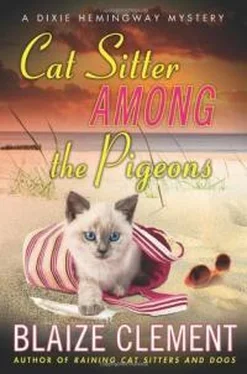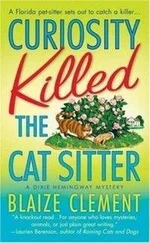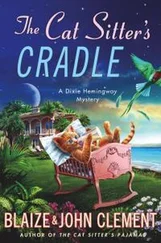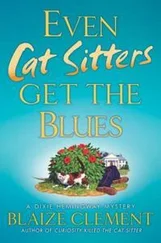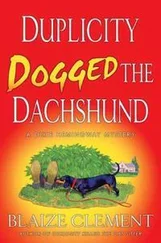He stopped. In a monotonous official voice, Inspector Kelsey cautioned his prisoner.
She did not listen. Turning toward Hercule Poirot, she burst out in a low-pitched flood of invective that startled everyone in the room.
“Whew!” said Adam, as Kelsey took her away. “And I thought she was a nice girl!”
Miss Johnson had been kneeling by Miss Chadwick.
“I'm afraid she's badly hurt,” she said. “She'd better not be moved until the doctor comes.”
Cat Among the Pigeons
Chapter 24
POIROT EXPLAINS
Mrs. Upjohn, wandering through the corridors of Meadowbank school, forgot the exciting scene she had just been through. She was for the moment merely a mother seeking her young. She found her in a deserted classroom. Julia was bending over a desk, her tongue protruding slightly, absorbed in the agonies of composition.
She looked up and stared. Then flung herself across the room and hugged her mother.
“Mummy!”
Then, with the self-consciousness of her age, ashamed of her unrestrained emotion, she detached herself and spoke in a carefully casual tone - indeed almost accusingly.
“Aren't you back rather soon, Mummy?”
“I flew back,” said Mrs. Upjohn, almost apologetically, “from Ankara.”
“Oh,” said Julia. “Well - I'm glad you're back.”
“Yes,” said Mrs. Upjohn, “I am very glad too.”
They looked at each other, embarrassed. “What are you doing?” said Mrs. Upjohn, advancing a little closer.
“I'm writing a composition for Miss Rich,” said Julia. “She really does set the most exciting subjects.”
“What's this one?” said Mrs. Upjohn. She bent over.
The subject was written at the top of the page. Some nine or ten lines of writing in Julia's uneven and sprawling handwriting came below. “Contrast the Attitudes of Macbeth and Lady Macbeth to Murder,” read Mrs. Upjohn.
“Well,” she said doubtfully, “you can't say that the subject isn't topical!”
She read the start of her daughter's essay. “Macbeth,” Julia had written, “liked the idea of murder and had been thinking of it a lot, but he needed a push to get him started. Once he'd got started he enjoyed murdering people and had no more qualms or fears. Lady Macbeth was just greedy and ambitious. She thought she didn't mind what she did to get what she wanted. But once she'd done it she found she didn't like it after all.”
“Your language isn't very elegant,” said Mrs. Upjohn. “I think you'll have to polish it up a bit, but you've certainly got something there.”
Cat Among the Pigeons
II
Inspector Kelsey was speaking in a slightly complaining tone.
“It's all very well for you, Poirot,” he said. “You can say and do a lot of things we can't; and I'll admit the whole thing was well stage-managed. Got her off her guard, made her think we were after Rich, and then Mrs. Upjohn's sudden appearance made her lose her head. Thank the Lord she kept that automatic after shooting Springer. If the bullet corresponds -”
“It will, mon ami, it will,” said Poirot.
“Then we've got her cold for the murder of Springer. And I gather Miss Chadwick's in a bad way. But look here, Poirot, I still can't see how she can possibly have killed Miss Vansittart. It's physically impossible. She's got a cast-iron alibi - unless young Rathbone and the whole staff of Le Nid Sauvage are in it with her.”
Poirot shook his head. “Oh, no,” he said. “Her alibi is perfectly good. She killed Miss Springer and Mademoiselle Blanche. But Miss Vansittart -” He hesitated for a moment, his eyes going to where Miss Bulstrode sat listening to them. “Miss Vansittart was killed by Miss Chadwick.”
“Miss Chadwick?” exclaimed Miss Bulstrode and Kelsey together.
Poirot nodded. “I am sure of it.”
“But - why?”
“I think,” said Poirot, “Miss Chadwick loved Meadowbank too much...” His eyes went across to Miss Bulstrode.
“I see...” said Miss Bulstrode. “Yes, yes, I see... I ought to have known.” She paused. “You mean that she -”
“I mean,” said Poirot, “that she started here with you, that all along she has regarded Meadowbank as a joint venture between you both.”
“Which in one sense it was,” said Miss Bulstrode.
“Quite so,” said Poirot. “But that was merely the financial aspect. When you began to talk of retiring she regarded herself as the person who would take over.”
“But she's far too old,” objected Miss Bulstrode.
“Yes,” said Poirot, “she is too old and she is not suited to be a headmistress. But she herself did not think so. She thought that when you went she would be headmistress of Meadowbank as a matter of course. And then she found that that was not so. That you were considering someone else, that you had fastened upon Eleanor Vansittart. And she loved Meadowbank. She loved the school and she did not like Eleanor Vansittart. I think in the end she hated her.”
“She might have done,” said Miss Bulstrode. “Yes, Eleanor Vansittart was - how shall I put it - she was always very complacent, very superior about everything. That would be hard to bear if you were jealous. That's what you mean, isn't it? Chaddy was jealous.”
“Yes,” said Poirot. “She was jealous of Meadowbank and jealous of Eleanor Vansittart. She couldn't bear the thought of the school and Miss Vansittart together. And then perhaps something in your manner led her to think that you were weakening.”
“I did weaken,” said Miss Bulstrode. “But I didn't weaken in the way that perhaps Chaddy thought I would weaken. Actually I thought of someone younger still than Miss Vansittart. I thought it over and then I said not enough experience. Chaddy was with me then, I remember.”
“And she thought,” said Poirot, “that you were referring to Miss Vansittart. That you were saying Miss Vansittart was too young. She thoroughly agreed. She thought that experience and wisdom such as she had got were far more important things. But then, after all, you returned to your original decision. You chose Eleanor Vansittart as the right person and left her in charge of the school that weekend. This is what I think happened. On that Sunday night Miss Chadwick was restless; she got up and she saw the light in the squash court. She went out there exactly as she says she went. There is only one thing different in her story from what she said. It wasn't a golf club she took with her. She picked up one of the sandbags from the pile in the hall. She went out there all ready to deal with a burglar, with someone who for a second time had broken into the Sports Pavilion. She had the sandbag ready in her hand to defend herself if attacked. And what did she find? She found Eleanor Vansittart kneeling down looking in a locker, and she thought, it may be - for I am good,” said Hercule Poirot in a parenthesis, “at putting myself into other people's minds - she thought 'if I were a marauder, a burglar, I would come up behind her and strike her down.' And as the thought came into her mind, only half conscious of what she was doing, she raised the sandbag and struck. And there was Eleanor Vansittart dead, out of her way. She was appalled then, I think, at what she had done. It has preyed on her ever since - for she is not a natural killer, Miss Chadwick. She was driven, as some are driven, by jealousy and by obsession. The obsession of love for Meadowbank. Now that Eleanor Vansittart was dead she was quite sure that she would succeed you at Meadowbank. So she didn't confess. She told her story to the police exactly as it had occurred but for the one vital fact, that it was she who had struck the blow. But when she was asked about the golf club which presumably Miss Vansittart took with her, being nervous after all that had occurred, Miss Chadwick said quickly that she had taken it out there. She didn't want you to think even for a moment that she had handled the sandbag.”
Читать дальше
